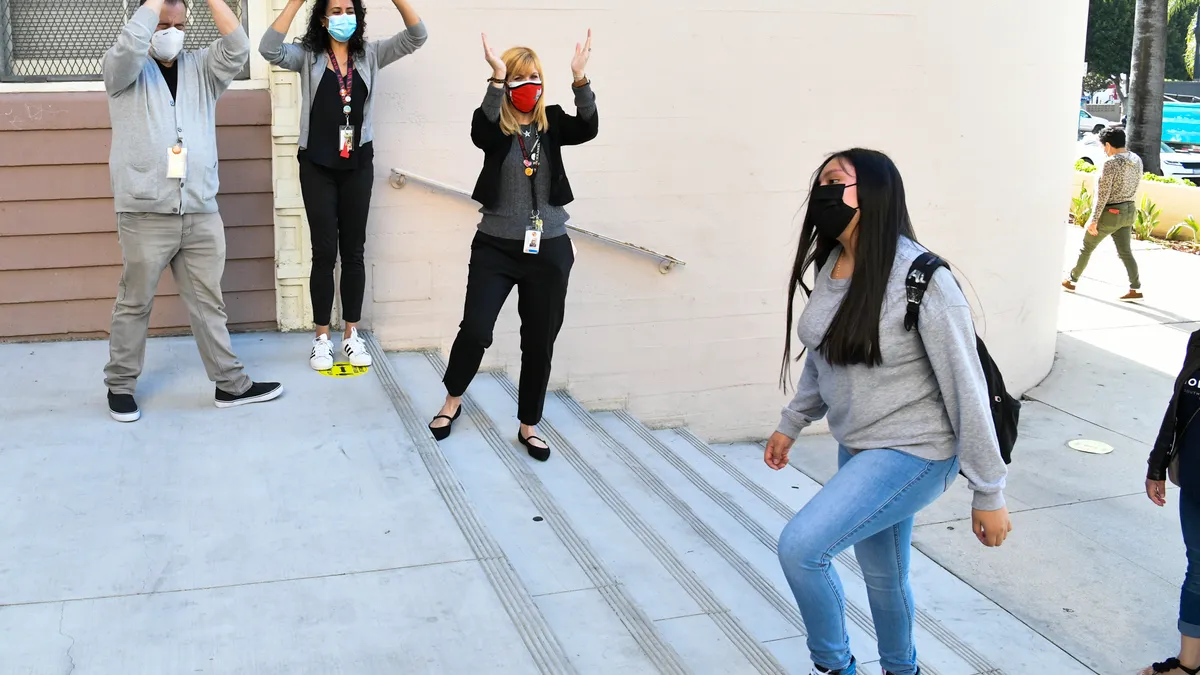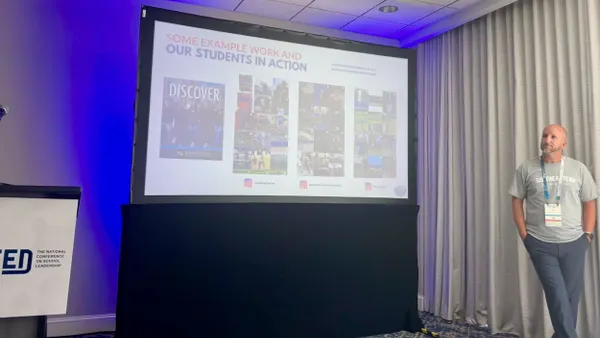Dive Brief:
- Setting up a classroom mentoring program allowed retired English teacher Renee Moore to enable students to develop connections with someone outside school to help them stay motivated and imagine their future potential, she writes for Edutopia. Students either nominated an adult in their life to act as a mentor, or Moore would tap people she knew who were interested in taking on the role.
- Students were tasked with writing to their potential mentors, asking if they would take on the role. Mentors sometimes came to school events, provided support during testing week, and would occasionally come to class and talk about their work and expertise.
- New students often started the school year ready with the name of a potential mentor, and Moore said some felt having someone encourage them throughout the year was a helpful experience.
Dive Insight:
Schools can link students with mentors to support their academics, but also use these networks to help learners delve deeper into potential career interests.
The nonprofit CovEd, for example, started during the pandemic to connect K-12 students with college student mentors, allowing them to learn more about potential career options. In one case a mentee interested in becoming an FBI agent was paired with a college student studying criminal justice.
These programs can also be linked into existing curriculum and classes. An art history student could be connected to an art historian at a museum, potentially even working as an intern. And science classes could offer a student a way to gain real-world understanding about the physics of how sound works from mentoring with a sound engineer.
Just being in a mentorship program can have a positive impact on students. A mentor, even if they're an older peer at school, can help to boost academic results for those who take part in a program. Mentors also don’t need to meet face-to-face. Regular and potentially long-term connections with mentees can still be built online.
These connections, when tied into curriculum, can help expand the way students learn about subjects they’re studying in school, support their academic growth, and potentially give rise to further opportunities as well.













